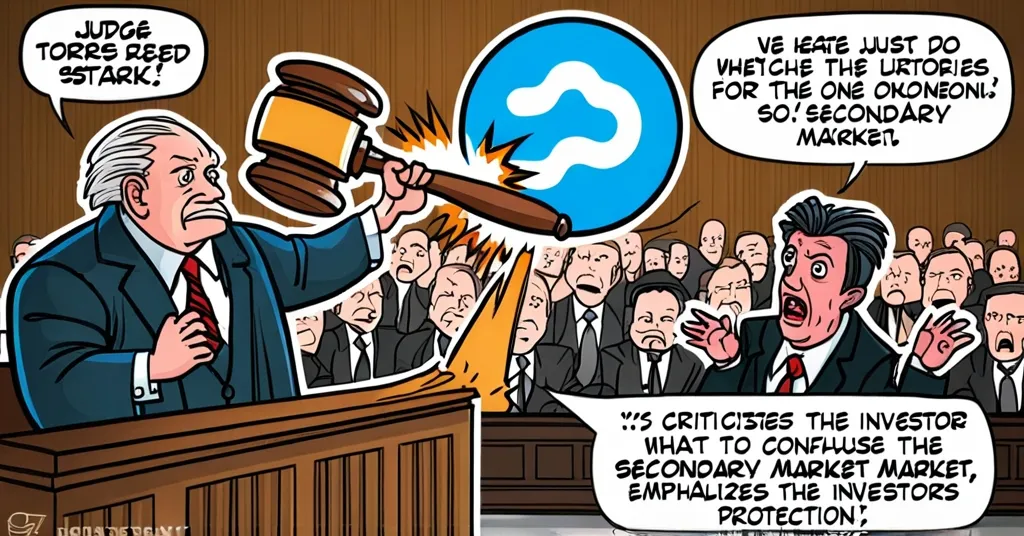Ripple vs. SEC: Stark Criticizes XRP Ruling, Calls for Clearer Investor Protections

Ripple vs. SEC: Stark and Ripple’s Legal Tussle Over XRP
The ongoing legal showdown between Ripple and the SEC has stirred up further controversy, with former SEC enforcement official John Reed Stark slamming the recent court decision. Stark argues that Judge Torres’s ruling on the XRP lawsuit lacks the necessary legal clarity and leaves retail investors vulnerable, especially in the context of secondary market trading.
- John Reed Stark criticizes Ripple’s ruling for its lack of legal clarity and potential confusion.
- He insists that XRP sales to sophisticated investors should be regulated as securities.
- Stark highlights concerns over the ruling’s impact on XRP’s secondary market trading.
- The SEC’s interlocutory appeal, aiming to challenge key legal questions, was rejected.
Stark’s Critique on Ripple Ruling
Stark, known for his skeptical view on cryptocurrencies, has taken a firm stance against what he sees as a misguided decision. He believes that many people misinterpret the nuances of Judge Torres’s ruling because they haven’t thoroughly examined it. Stark’s core argument is that the decision should only affect cases with similar fact patterns. His contention is that, “Respectfully to Judge Torres, I think she was mistaken on multiple counts,” indicating his concern that the current decision does not provide sufficient protection to retail investors.
Secondary Market Implications
Stark’s criticisms focus sharply on secondary market trading, where he sees the ruling as potentially leaving retail investors unprotected. The lack of legal clarity creates confusion around the application of securities regulations to digital assets like XRP. Stark asserts that transactions involving sophisticated investors should fall under securities laws, aligning them with traditional regulatory frameworks. Secondary market trading refers to transactions that occur after a security has already been issued, such as individual investors buying and selling XRP on exchanges.
Impact on SEC Strategy
The SEC’s request for an interlocutory appeal, which sought to address broader legal questions, was denied by the judge, leaving the ruling to stand as is. An interlocutory appeal is a legal term for an appeal of a ruling before the trial has concluded. This appeal was pivotal for the SEC as it could have set a wider precedent for how digital assets like XRP are regulated. The rejection could influence the SEC’s strategies in future cases, shaping the regulatory landscape for cryptocurrencies and digital tokens.
Stark finds backing from other legal experts, including Judge Rakoff, who shares some of his concerns. Their agreement adds weight to the debate over how cryptocurrencies should be classified under existing securities laws. This legal drama not only highlights the complex intersection of innovation and regulation but also underscores the necessity of protecting investors in the rapidly developing digital currency market.
The Ripple case remains a critical focal point in the ongoing discourse on cryptocurrency regulation. Stark’s critiques, alongside the evolving legal developments, stress the importance of clear and comprehensive regulations tailored for digital assets. As the case progresses, its outcomes are likely to shape the regulatory framework and influence the trajectory of cryptocurrency markets.
Considerations for the Crypto Community:
- How should regulators balance the need for innovation in cryptocurrency with investor protections?
- What are the broader implications of the Ripple decision for the cryptocurrency market?
- How might the SEC’s strategies adapt following the rejection of the interlocutory appeal?



